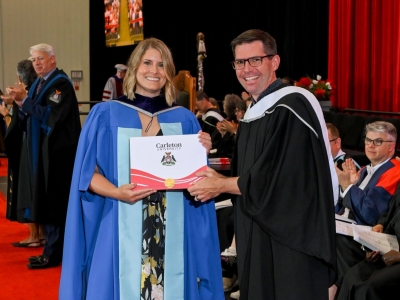Dr. Miranda Brady wants to challenge what you think you know about Millennials and their mothers. Stereotypes framing Millennials as entitled transcend popular discourse while their mothers are cast as overbearing and ‘Karen-esque.’ These one-dimensional depictions fail to account for nuance, demographic characteristics – like race, class and gender – and the distribution of domestic labour common in contemporary family structures.

Dr. Miranda Brady
Both Millennials and younger adult Generation Zs, have struggled to establish economic footing. This has led to living at home longer and greater dependence on parental finances, relative to earlier generations. Covid-19 has likely exacerbated this situation, with many moving back in with their parents due to job loss or university closures. With the recent launch of the ‘Millennials and their Moms’ survey, Brady seeks to explore how this precarious reality impacts dynamics between Millennials and adult Gen Zs and their mothers. Specifically, Brady’s survey explores how demographic information, living arrangements, and the ongoing Covid-19 pandemic impact 1,000 Millennials and adult Gen Zs’ relationships to their mothers. States Brady, “As the first pandemic lockdown took effect, I noticed that several of my neighbours had adult children moving in with them. While I was already interested in issues of invisible labour, I wondered how post pandemic conditions compared with previous years in terms of sharing or not sharing domestic tasks and generally how mothers and their children were getting along.”
The ‘Millennials and their Moms’ survey represents the first phase in what will be a larger body of work. Brady intends to roll out phase two in the coming months, which will see long-form, dialogic interviews conducted with both Millennials and adult Gen Zs as well as mothers of adult children the same age, offering greater insight into present-day mother-adult child dynamics. While Feminist literature has long documented disproportionate domestic labour performed by women globally, Brady’s research will contribute to better understanding of how Millennial life courses alter – and contribute to – household exchange economies largely unaccounted for in Gross Domestic Product.
This is familiar terrain for Brady. Interested in the changing expectations of gender roles in relation to motherhood and reproductive labour, Dr. Brady’s work has previously explored the “bad mother” trope in popular culture, with future publications examining anti-vaxx moms, and horror films emerging from second wave feminism.

Emma Francis
Brady was assisted in launching phase one of her research by fourth year B. CoMS student, Emma Francis. Through the Internship-Carleton University Research Experience for Undergraduate Students (I-CUREUS) program, Francis had the opportunity to tangibly apply academic concepts previously learned in classroom settings over the course of her studies. Working collaboratively with Dr. Brady, Francis gained experience submitting research ethics protocols; designing research instruments; and conducting a literature review. The I-CUREUS program compensates and creates the opportunity for undergraduate students to conduct research in their area of interest. Beyond gaining hands-on research experience, working closely with Carleton faculty offers students invaluable mentorship. “I-CUREUS served as an integrative pedagogical extension that complimented my theoretical, in-class education,” said Francis. “I am grateful for the opportunity to have shadowed Dr. Brady in her research and would encourage students to take advantage of this program while they are pursuing their undergraduate studies.”
If you are a Millennial or Generation Z and are interested in taking Dr. Brady’s survey, you can do so here.
For more information on I-CUREUS, or to apply, visit Carleton University’s Discovery Centre here.
Monday, November 30, 2020 in Communication News, News
Share: Twitter, Facebook



